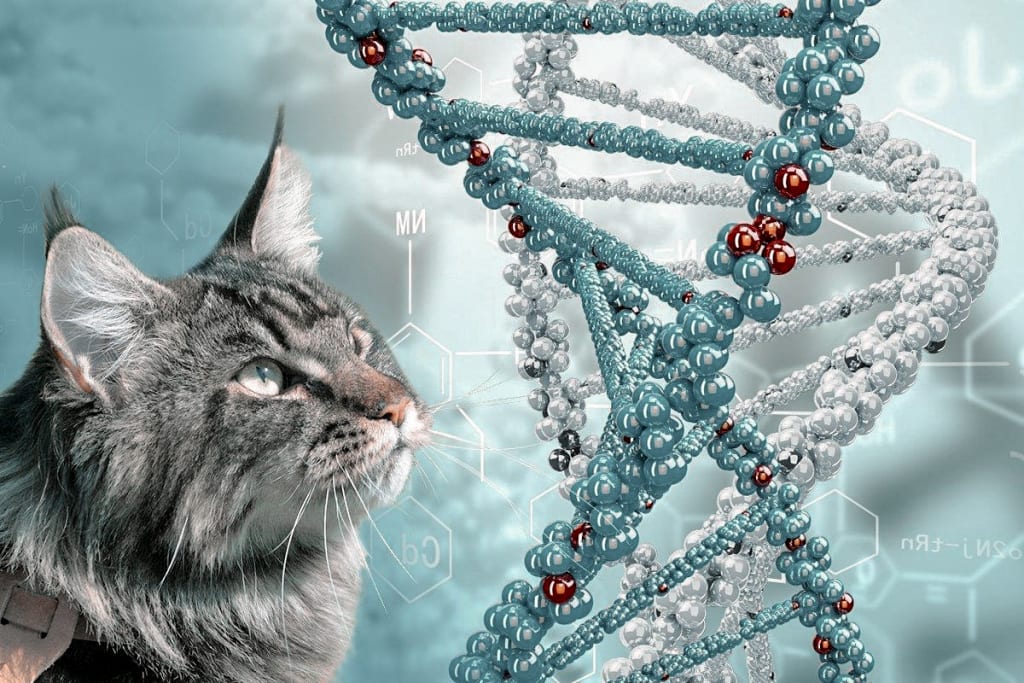Decoding the Blueprint of Life: Exploring the Wonders of Genetics and DNA
In the intricate tapestry of life, genetics and DNA serve as the foundational threads that weave together the complexity of living organisms. From the inheritance of traits to the mechanisms of evolution, the study of genetics and DNA holds the key to unlocking the mysteries of heredity, diversity, and the unity of all living things. In this exploration, we delve into the fascinating world of genetics and DNA, unraveling the secrets of the blueprint of life.

1. Understanding Genetics:
Genetics is the branch of biology that explores how traits are passed from one generation to the next through the transmission of genetic information. Genes, the units of heredity, are segments of DNA that contain the instructions for building proteins and determining specific traits, such as eye color, hair texture, and susceptibility to diseases. Through the process of reproduction, genetic information is passed from parent to offspring, shaping the characteristics of each new generation.
2. The Structure of DNA:
DNA, or deoxyribonucleic acid, is the molecule that carries the genetic instructions for all living organisms. The structure of DNA resembles a twisted ladder, known as a double helix, composed of two strands of nucleotides held together by hydrogen bonds. Each nucleotide consists of a sugar molecule, a phosphate group, and one of four nitrogenous bases: adenine (A), thymine (T), cytosine (C), and guanine (G). The sequence of these bases along the DNA molecule forms the genetic code that determines an organism's traits.
3. DNA Replication:
One of the fundamental processes in genetics is DNA replication, the mechanism by which DNA is copied to produce identical copies of itself. During cell division, DNA unwinds and separates into two strands, each of which serves as a template for the synthesis of a new complementary strand. Enzymes called DNA polymerases catalyze the addition of nucleotides to the growing DNA strand, ensuring that the genetic information is faithfully replicated and passed on to daughter cells.
4. Genetic Variation:
Genetic variation is the diversity of genetic traits within a population or species, resulting from mutations, genetic recombination, and other evolutionary processes. Mutations, changes in the DNA sequence, can arise spontaneously or be induced by environmental factors such as radiation or chemicals. Genetic recombination occurs during meiosis, the process of cell division that produces gametes (sperm and eggs), resulting in new combinations of genetic material in offspring.
5. Mendelian Genetics:
Mendelian genetics, named after the pioneering work of Gregor Mendel, explores the principles of inheritance and the patterns of genetic transmission observed in offspring. Mendel's experiments with pea plants revealed the existence of discrete units of heredity, which we now recognize as genes, and the principles of dominance, segregation, and independent assortment that govern their inheritance.
6. Human Genetics:
The study of human genetics has provided invaluable insights into the genetic basis of health and disease, as well as the diversity of human populations worldwide. Human genome sequencing projects, such as the Human Genome Project, have mapped the entire sequence of DNA in the human genome, enabling researchers to identify genes associated with various traits, disorders, and susceptibility to diseases.
7. Applications of Genetics:
Genetics has a wide range of applications in fields such as medicine, agriculture, forensics, and biotechnology. In medicine, genetic testing and genetic counseling are used to assess the risk of inherited disorders, diagnose genetic diseases, and guide treatment decisions. In agriculture, genetic engineering and selective breeding techniques are used to improve crop yields, enhance nutritional content, and develop disease-resistant varieties. In forensics, DNA profiling is used to identify individuals and establish relationships in criminal investigations and paternity testing.
8. Ethical Considerations:
The rapid advancements in genetics and DNA technology have raised ethical concerns regarding privacy, consent, discrimination, and the potential misuse of genetic information. Issues such as genetic testing without informed consent, the use of genetic data for discriminatory purposes, and the implications of genetic modification on human health and biodiversity require careful consideration and ethical oversight to ensure responsible and equitable use of genetic technologies.
9. Future Directions:
As our understanding of genetics and DNA continues to evolve, new frontiers in research hold the promise of groundbreaking discoveries and transformative applications. Advances in gene editing technologies such as CRISPR-Cas9, precision medicine approaches tailored to individual genetic profiles, and the potential for gene therapy to treat genetic diseases offer exciting opportunities to improve human health and well-being.
10. Conclusion:
In conclusion, genetics and DNA are the building blocks of life, shaping the characteristics and diversity of all living organisms. From the structure of DNA to the inheritance of traits, the study of genetics holds profound implications for our understanding of evolution, health, and the interconnectedness of all living things. By unraveling the mysteries of the genetic code, we gain insight into the fundamental processes that govern life on Earth and the potential for harnessing genetic technologies to address the challenges of the future.
About the Creator
Mohamed Ali
Mohamed Ali is a passionate writer and researcher with a keen interest in exploring the complexities of human behavior and society through the lens of sociology. With a background in sociology and psychology.






Comments
There are no comments for this story
Be the first to respond and start the conversation.